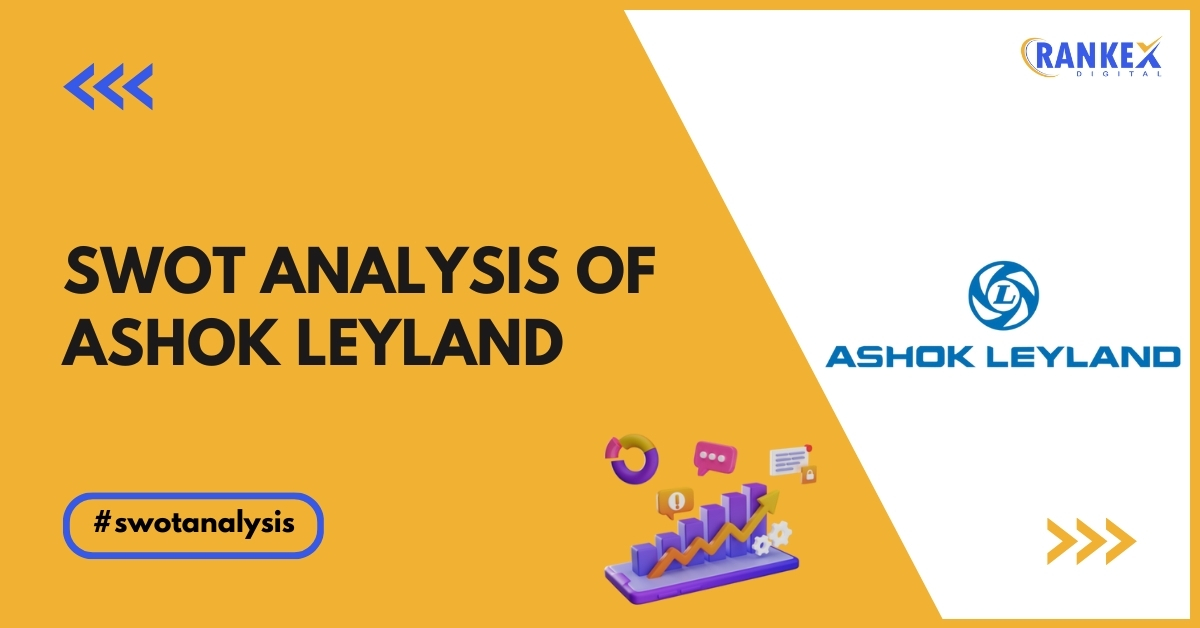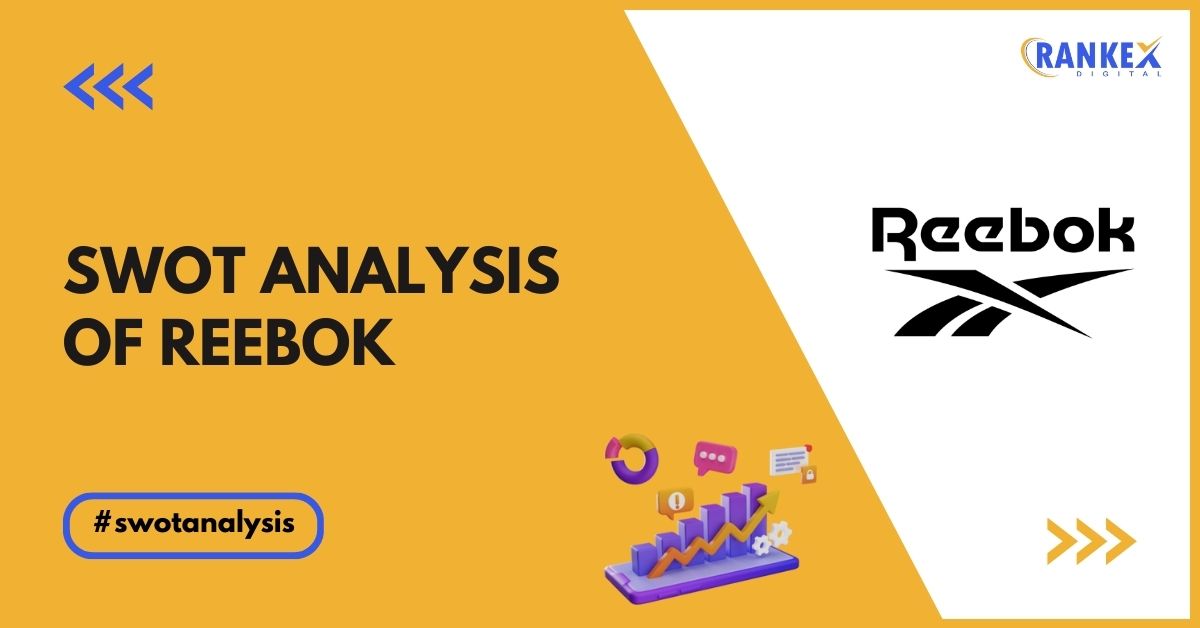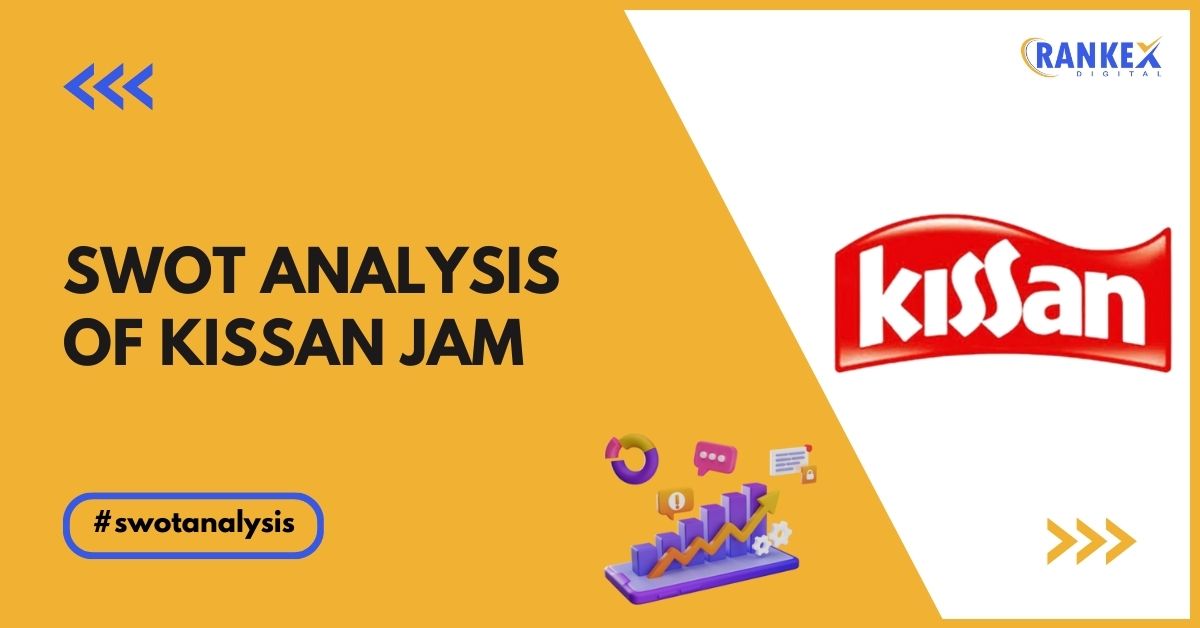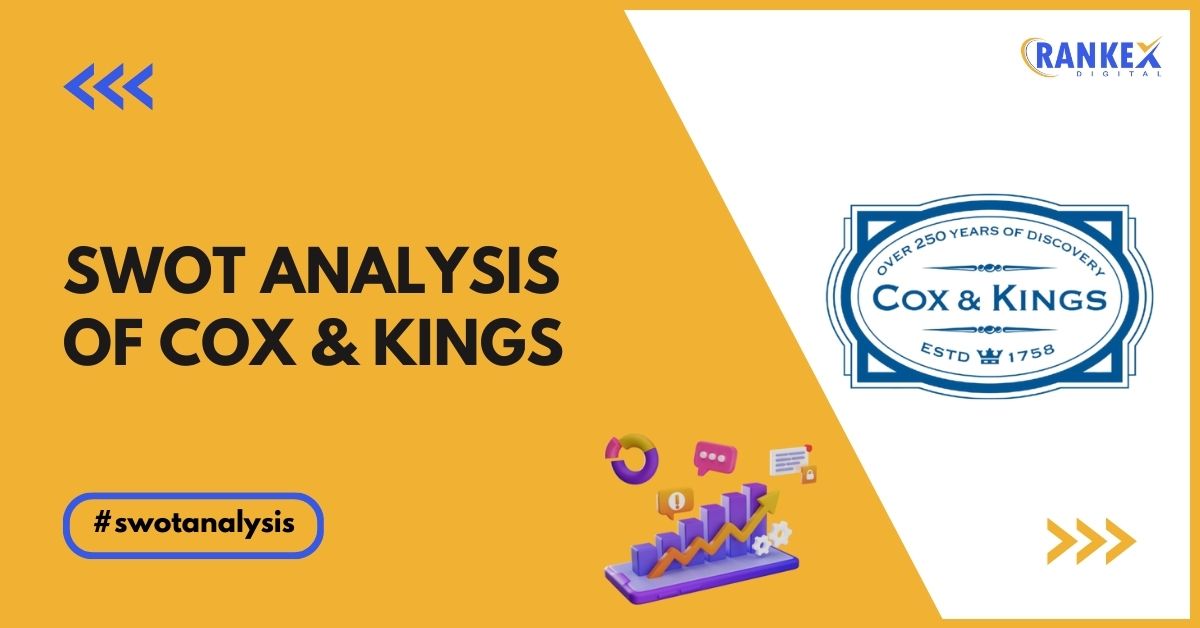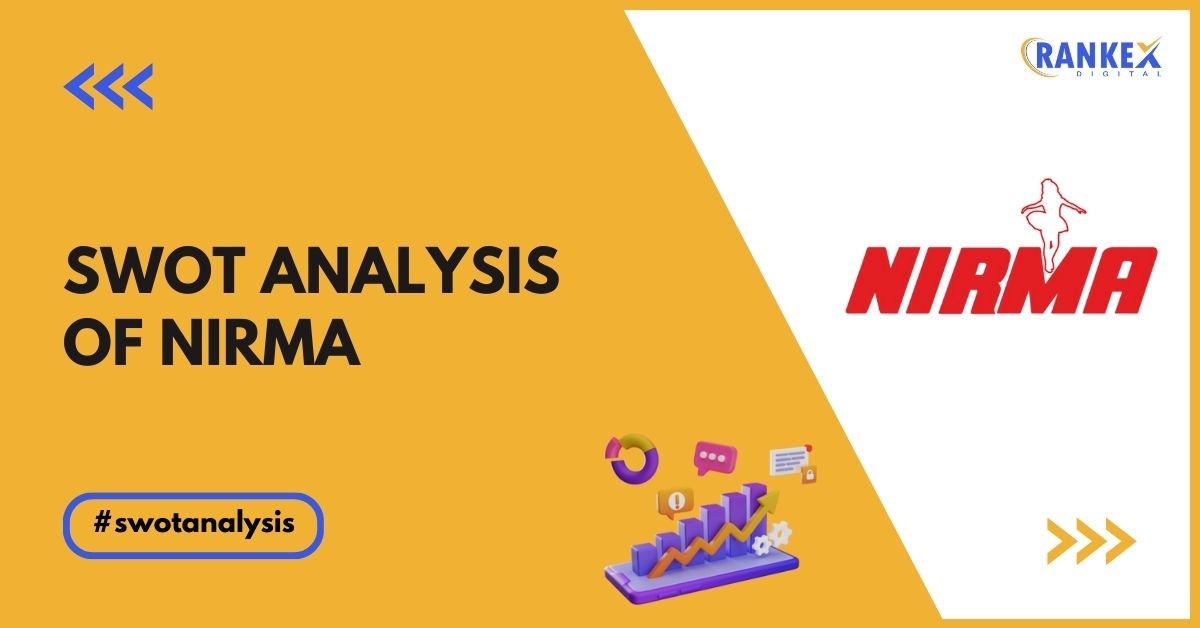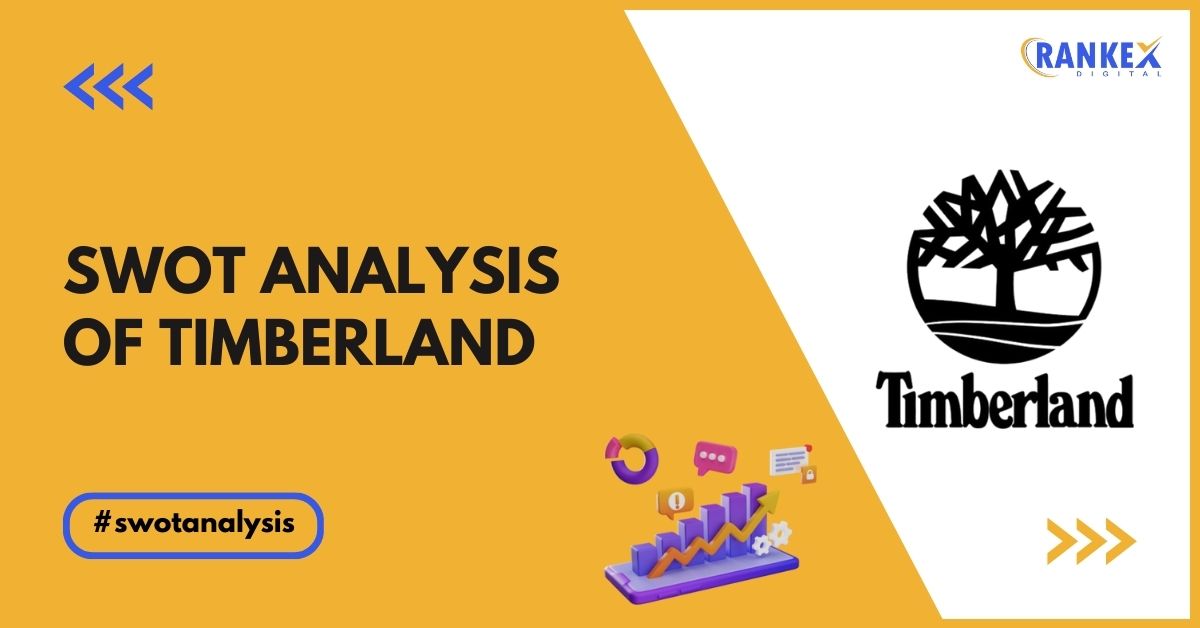Ashok Leyland is one of India’s leading manufacturers of commercial vehicles, renowned for its innovative and reliable products in the automotive industry. With a legacy that spans several decades, Ashok Leyland has established itself as a key player in the transportation sector, both domestically and internationally.
Understanding the strengths, weaknesses, opportunities, and threats (SWOT) of Ashok Leyland is crucial to assess its position in the market and to explore future strategies for growth. This article provides an in-depth SWOT analysis of Ashok Leyland, exploring its key attributes and competitive landscape.
In this blog
Overview of Ashok Leyland
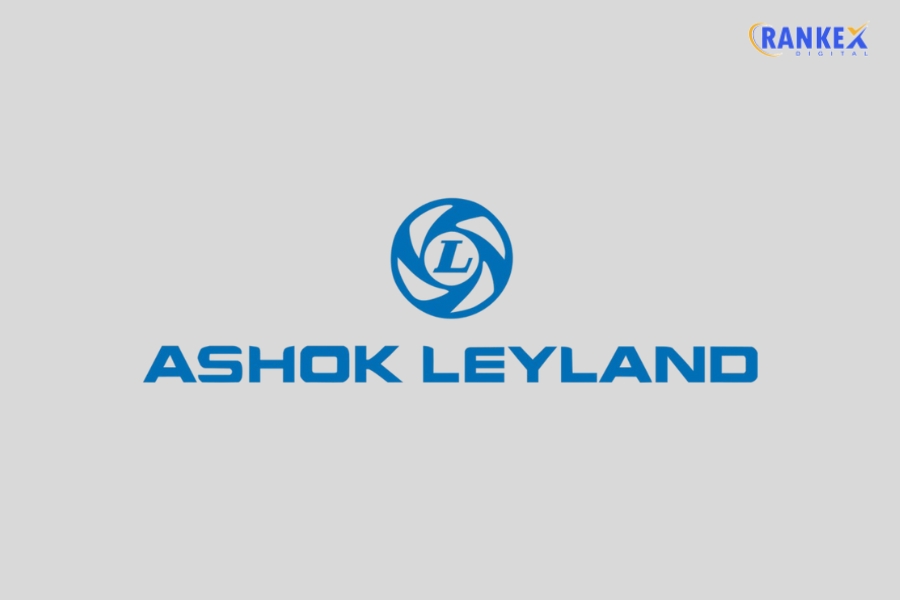
Founded in 1948, Ashok Leyland is a flagship company of the Hinduja Group, headquartered in Chennai, Tamil Nadu. The company manufactures a wide range of commercial vehicles, including trucks, buses, and defense vehicles. Ashok Leyland also focuses on advanced technologies and sustainability, with a commitment to offering solutions that meet the evolving needs of the transportation sector.
Quick Stats About Ashok Leyland
| Attribute | Details |
|---|---|
| Founder | Hinduja Group |
| Year Founded | 1948 |
| Origin | Chennai, Tamil Nadu, India |
| No. of Employees | 13,000+ |
| CEO | Dheeraj Hinduja |
| Company Type | Public |
| Market Cap | $5 Billion |
| Annual Revenue | $3.6 Billion |
| Net Profit | $100 Million |
Current News of Ashok Leyland
- Electric Vehicle Development: Ashok Leyland has been making significant strides in electric vehicle manufacturing, focusing on electric buses and trucks as part of its green mobility initiative.
- Global Expansion: The company has been expanding its international footprint, with increased exports to countries in Africa, the Middle East, and Southeast Asia.
- Partnerships: Ashok Leyland has been collaborating with various technology firms to enhance its vehicles’ performance, focusing on automation and fuel efficiency.
- Sustainability Focus: The company is investing in sustainable practices, aiming to reduce its carbon footprint through environmentally friendly production techniques and alternative fuel solutions.
SWOT Analysis of Ashok Leyland
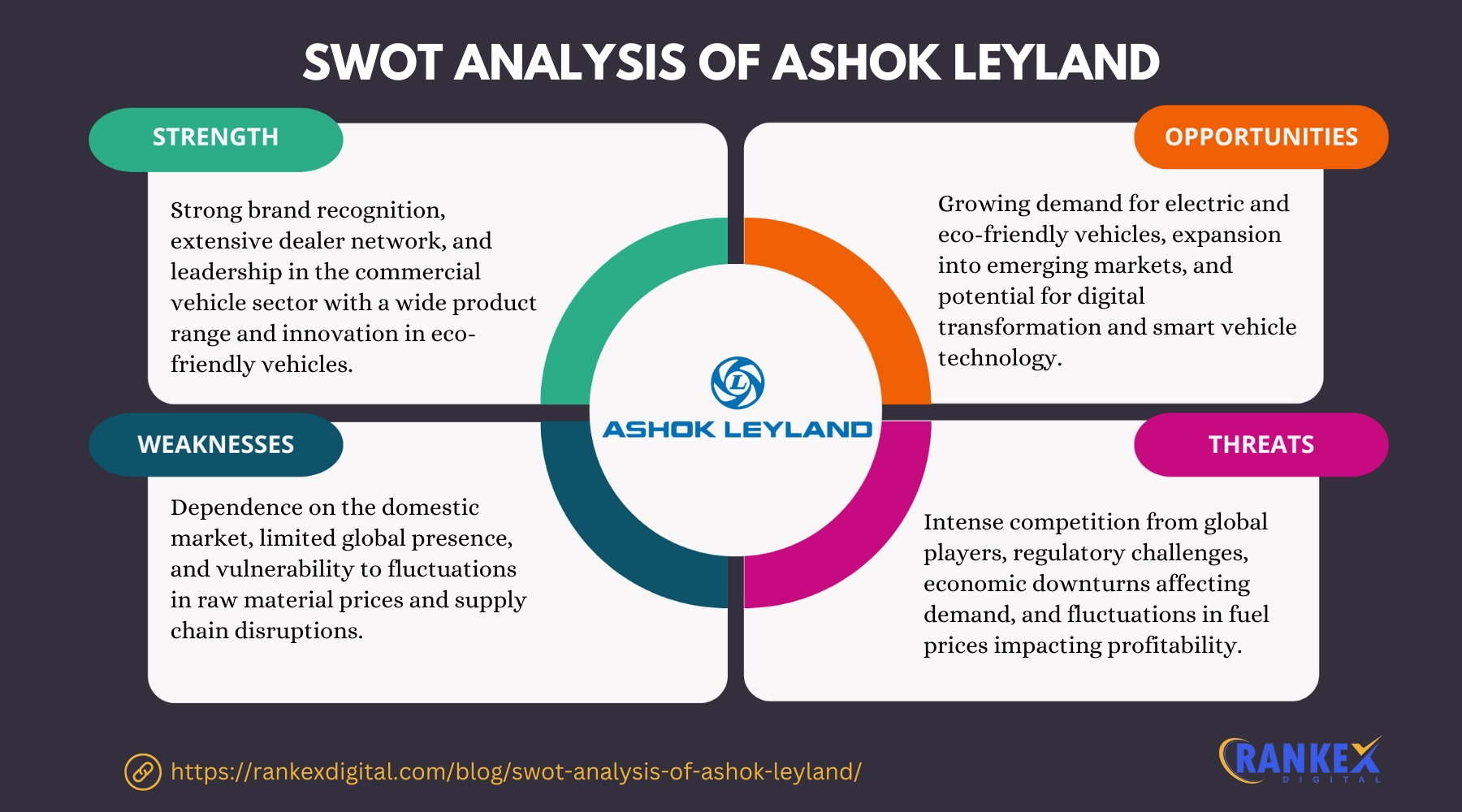
Strengths:
- Strong Brand Recognition:
- Ashok Leyland is a well-established name in the Indian market and internationally. It has earned the trust of customers by consistently delivering reliable and durable vehicles. This strong brand equity helps attract customers and build long-term relationships.
- Diverse Product Portfolio:
- Ashok Leyland produces a broad range of commercial vehicles, from buses and trucks to specialized defense vehicles. This allows the company to cater to various industries like transportation, logistics, and defense, reducing its reliance on any one segment and diversifying its revenue streams.
- Technological Innovation:
- The company has embraced technological advancements, including eco-friendly solutions like electric vehicles and alternative fuel vehicles. Its investment in telematics, which integrates vehicle tracking, monitoring, and performance analysis, helps improve fleet management and operational efficiency.
- Strong Market Presence:
- Ashok Leyland is a dominant player in India’s commercial vehicle market, often being the first choice for public and private transport. The company has also expanded its reach to international markets, which helps mitigate risks related to domestic market fluctuations.
- Robust Manufacturing Capabilities:
- The company has a strong manufacturing footprint, with multiple plants in India and overseas. This enables it to meet the growing demand both in domestic and international markets while also optimizing production costs and supply chain management.
Weaknesses:
- Dependence on the Indian Market:
- Despite its efforts to expand globally, Ashok Leyland remains heavily dependent on the Indian market. Economic downturns or a reduction in government spending on infrastructure or transport projects in India can significantly affect the company’s revenue.
- High Competition:
- The commercial vehicle industry is highly competitive, with domestic players like Tata Motors and Mahindra, and international giants like Volvo and Mercedes-Benz offering similar or superior products. Ashok Leyland needs to maintain a competitive edge in terms of pricing, innovation, and customer service to hold its ground.
- Slow Adaptation to New Trends:
- While the company has made advancements in electric vehicles, it has been slower compared to some of its competitors in fully integrating the latest trends in electric mobility and autonomous driving technology. Rapid developments in these areas could make it harder for Ashok Leyland to stay competitive.
- Cost Management Issues:
- The company has faced challenges in managing its production costs, especially with fluctuating prices of raw materials like steel and aluminum. This can affect profit margins, particularly during periods of economic uncertainty when operational costs increase.
- Limited Product Diversification:
- Unlike some competitors, Ashok Leyland is largely focused on the commercial vehicle sector. While this specialization can be an advantage, it also means the company is more vulnerable to market fluctuations in this sector and has limited flexibility to adapt to other opportunities in the automotive market.
Opportunities:
- Growth in Electric and Green Mobility Solutions:
- As governments and industries push for more sustainable solutions, there’s a rising demand for electric and alternative fuel vehicles. Ashok Leyland has a strong opportunity to capitalize on this trend, particularly in the bus and truck segments, by investing more in electric vehicle (EV) technology and green mobility solutions.
- Global Expansion:
- Ashok Leyland has significant potential to expand into emerging markets, particularly in regions like Africa, Southeast Asia, and Latin America, where infrastructure development and demand for commercial vehicles are growing rapidly. This could help diversify its revenue streams and reduce reliance on the Indian market.
- Partnerships and Collaborations:
- Forming strategic alliances with global automotive players, tech companies, or electric vehicle innovators could give Ashok Leyland a competitive edge. Partnerships can also help access new markets, gain advanced technologies, and improve product offerings.
- Government Initiatives:
- The Indian government’s focus on infrastructure development, including public transport initiatives, presents opportunities for Ashok Leyland to provide more buses and commercial vehicles. Additionally, the government’s push for EVs can create a conducive environment for the company to expand its electric vehicle range.
- Diversification into New Segments:
- Ashok Leyland could explore expanding its product offerings into areas like electric two-wheelers, logistics automation technologies, or smart transportation solutions. This would allow the company to tap into new, high-growth segments and reduce its reliance on the commercial vehicle market alone.
Threats:
- Intense Competition:
- The commercial vehicle industry faces stiff competition, not just from domestic players but also from global giants. Ashok Leyland must constantly innovate and maintain product quality to avoid losing market share to competitors like Tata Motors, Mahindra, Volvo, or Mercedes-Benz.
- Regulatory Changes:
- Environmental regulations, especially regarding emissions and fuel efficiency, are becoming stricter worldwide. These changes could require Ashok Leyland to make significant investments in upgrading its vehicle designs and manufacturing processes, potentially increasing costs and impacting profitability.
- Economic Instability:
- Economic downturns, fluctuations in fuel prices, or delays in infrastructure projects can impact the demand for commercial vehicles. Ashok Leyland needs to manage its finances effectively to weather such economic uncertainties and maintain growth during challenging times.
- Technological Disruption:
- Rapid advancements in autonomous vehicles, alternative fuel solutions, and electric mobility present a significant challenge. Ashok Leyland needs to keep pace with these developments to avoid being outpaced by newer, more innovative entrants into the market.
- Supply Chain Challenges:
- Like other manufacturers, Ashok Leyland is vulnerable to supply chain disruptions caused by factors like natural disasters, geopolitical instability, or pandemics. These disruptions can affect production timelines, increase costs, and lead to delays in delivering products to customers.
Conclusion
The SWOT analysis of Ashok Leyland reveals a company with strong brand recognition, a diverse product portfolio, and a solid position in both the Indian and international markets. However, it faces challenges such as fierce competition, high dependence on the domestic market, and the need to adapt more rapidly to emerging technological trends.
The opportunities in electric mobility, global expansion, and partnerships can propel Ashok Leyland toward future growth. However, it must remain vigilant against threats such as regulatory changes, economic fluctuations, and technological disruptions.
By leveraging its strengths and addressing its weaknesses, Ashok Leyland can continue to play a pivotal role in the global commercial vehicle industry.
Frequently Asked Questions
What is Ashok Leyland’s most popular product?
Ashok Leyland’s most popular products include its range of buses, trucks, and commercial vehicles, especially in the Indian public transport sector.
Is Ashok Leyland expanding globally?
Yes, Ashok Leyland has been expanding its international presence, focusing on markets in Africa, the Middle East, and Southeast Asia, with increasing exports of vehicles.
What are Ashok Leyland’s plans for electric vehicles?
Ashok Leyland is investing heavily in electric vehicle technology, with a focus on electric buses and trucks to meet the growing demand for eco-friendly transportation solutions.
How does Ashok Leyland compete with other commercial vehicle manufacturers?
Ashok Leyland competes by offering durable, cost-effective vehicles, leveraging technological innovations, and maintaining a strong presence in both the Indian and export markets.
What challenges does Ashok Leyland face in the commercial vehicle market?
Ashok Leyland faces challenges such as intense competition from both domestic and international players, the need for technological innovation, and fluctuations in the global economy.

